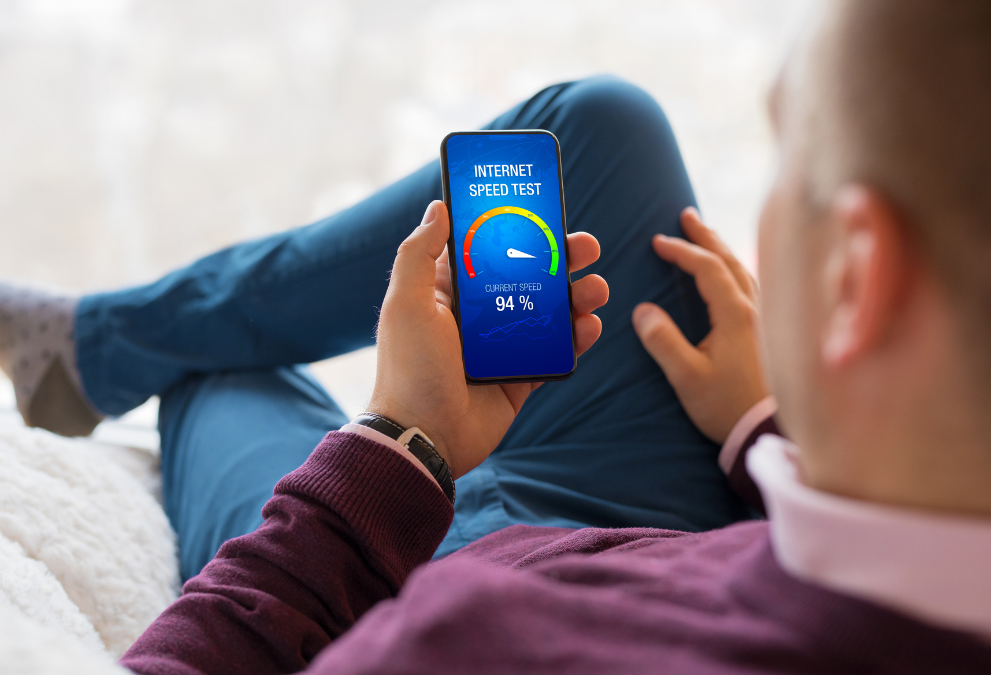Blogs
Fast, secure and reliable Wi-Fi is becoming the hospitality industry’s top amenity.
Are you in the game?
Fast, secure and reliable Wi-Fi is becoming the hospitality industry’s top amenity.
Are you in the game?

In today’s fast-paced digital world, a stable and high-speed internet connection is crucial for both personal and professional use. Whether you’re streaming your favorite TV show, conducting an online meeting, or simply browsing the web, a slow Wi-Fi connection can be frustrating. Several factors can affect your Wi-Fi connection speed, and understanding them can help you optimize your internet experience. This article will explore the various elements that can impact your Wi-Fi connection speed and provide insights on how to enhance it. We’ll also take a look at Vayudoot, an internet service provider in Dharamshala, known for providing high-speed internet solutions.
In an increasingly interconnected world, having a Wi-Fi connection that is both dependable and quick has become an absolute requirement. If you work from home, stream material, or play games online, a slow internet connection may make all of these activities less enjoyable and reduce the amount of productivity you achieve. When troubleshooting and trying to optimize the performance of your network, it is necessary to have a solid understanding of the elements that might affect the speed of your Wi-Fi connection..
A high-speed Wi-Fi connection has several advantages, including the availability of quicker data transmission, uninterrupted video streaming, and more enjoyable experiences while playing online games. It enables you to connect many devices at the same time, download data fast, and stream high-definition material without buffering. However, various things might restrict the proper functionality of your Wi-Fi connection.
One of the primary factors that can impact your Wi-Fi connection speed is interference from other electronic devices. Devices such as cordless phones, microwave ovens, baby monitors, and bluetooth devices operate on frequencies that can interfere with your Wi-Fi signal. This interference can cause slow speeds, disconnections, and overall poor performance. To mitigate this issue, ensure that your Wi-Fi router is placed away from such devices and other electronics that may interfere with the signal.
The distance between your device and the Wi-Fi router also plays a crucial role in determining the connection speed. As you move farther away from the router, the signal strength decreases, leading to slower speeds and potential signal dropouts. To improve your connection, try to position yourself closer to the router or consider investing in a Wi-Fi range extender to amplify the signal throughout your home or office.
Physical obstacles like walls, floors, and furniture can obstruct the Wi-Fi signal, resulting in reduced connection speeds. Thick walls, metal structures, and large appliances can significantly attenuate the signal strength. It is important to consider the physical layout of your space and the location of your router when optimizing your Wi-Fi connection. Placing the router in a central location and minimizing obstructions can help improve signal quality and overall performance.
Wi-Fi operates on different channels, and when multiple devices in close proximity use the same channel, congestion can occur. This congestion leads to slower speeds and increased latency. Modern Wi-Fi routers can automatically select the least congested channel, but it’s still worth checking your router settings to ensure it is operating on the best available channel.
Router manufacturers often release firmware updates to address security vulnerabilities and improve performance. Using outdated firmware can result in suboptimal Wi-Fi speeds and potential connectivity issues. Check your router manufacturer’s website regularly for firmware updates and install them to ensure your Wi-Fi connection is up to date.
The speed of your internet connection from your Internet Service Provider (ISP) can also impact your Wi-Fi speed. If you have a slow internet connection, your Wi-Fi speeds will be limited accordingly. Contact your ISP to ensure you are subscribed to an internet plan that meets your needs and provides sufficient bandwidth for your Wi-Fi usage.
The number of devices connected to your Wi-Fi network can affect the overall connection speed. Each device consumes a portion of the available bandwidth, so if you have multiple devices simultaneously using the Wi-Fi, it can lead to slower speeds for each device. Consider disconnecting devices that are not in use or investing in a router that supports higher device capacities.
The quality and capabilities of your Wi-Fi router can significantly impact your connection speed. Older or cheaper routers may not provide the same level of performance as newer, higher-end models. Investing in a quality router with advanced features like beamforming, multiple antennas, and higher transmission power can result in faster and more reliable Wi-Fi speeds.
In densely populated areas, neighboring Wi-Fi networks can cause signal interference and affect your connection speed. Wi-Fi signals operate on specific frequency bands, and if multiple networks are using the same or overlapping channels, it can lead to congestion and slower speeds. To mitigate this issue, you can manually select a less congested channel or consider using a router with advanced features that automatically detect and switch to the best available channel.
Environmental factors such as weather conditions and physical surroundings can impact your Wi-Fi connection speed. For example, heavy rain or thick fog can attenuate the signal, resulting in slower speeds. Additionally, objects like mirrors and glass can reflect or refract the Wi-Fi signal, causing signal degradation. While it may not be possible to control these factors entirely, being aware of them can help you identify potential issues and make necessary adjustments.
Vayudoot is a leading internet service provider in Dharamshala that specializes in delivering high-speed internet solutions. With their state-of-the-art infrastructure and advanced network technologies, Vayudoot offers reliable and fast internet connections to residential and business customers in and around Kangra district. We prioritize customer satisfaction and provide tailored internet packages to meet the requirements of their clients.
Conclusion
A fast and stable Wi-Fi connection is essential for maximizing your internet experience. By understanding the factors that can impact your Wi-Fi connection speed mentioned in this article, you can optimize your network performance. Remember to consider elements such as distance from the router, interference, physical barriers, outdated hardware, network congestion, and bandwidth limitations. By taking these factors into account, you can enjoy a seamless and high-speed internet connection.




